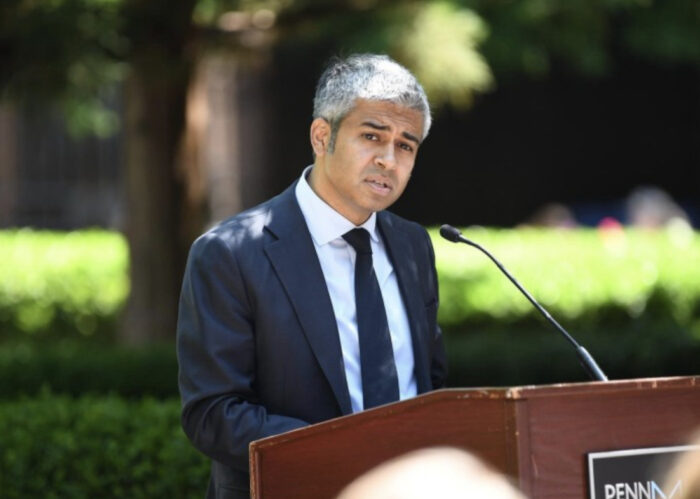
Mike Pence on Leadership and the Future of the Republican Party
Former US Vice President Mike Pence looks back on the events of January 6 2021, his final days in office with President Trump and his…
Thought Leader: Mike Pence

Last week, I had the honor of delivering the commencement address for the Master of Health Care Innovation at the University of Pennsylvania, my medical school alma mater. My sincere thanks to Dr. Zeke Emanuel and the Department of Medical Ethics and Health Policy for the invitation.
My remarks started out not by congratulating the Class of 2023, but thanking them for devoting their lives to the health and well-being of others. Our country and others face enormous challenges in the public health arena, and meeting those challenges will require innovation, creativity, risk-taking and commitment.
One of the slivers of a silver lining from the Covid pandemic is that there is a better understanding and appreciation for people who have dedicated their careers to public health. It is safe to say that we, as individuals, and we as a nation could not have navigated a pandemic of such proportion without the leadership and guidance of public health leaders.
It was important to look ahead with the graduates about the challenges they will face in their careers. There are dozens I could have listed, but I focused on five key priorities:
Preparing for the next pandemic – there will certainly be another one
Covid impacted all of us, not just personally, but also professionally. The pandemic presented unprecedented challenges for the entire healthcare community. We had to make decisions guided by science and the best-known evidence, even in the face of myriad unknowns and uncertainties. Covid unveiled many structural problems with American healthcare. Going forward, we have a responsibility to learn from our actions and then focus, as a society but also as health care professionals, on what we must do better in the future. By proactively planning for additional and inevitable disease outbreaks, the U.S. can implement early detection, surveillance, and containment strategies to minimize public health consequences. Preparedness measures help maintain economic and social stability by reducing disruptions to businesses, schools, trade, and supply chains.
Getting new cures to patients
Over the past five years, so many cutting-edge treatments, such as cell-based gene therapy for beta-thalassemia and new targeted cancer therapies, have come to market. These advanced therapies always come with high development and manufacturing costs, leading to sometimes astronomical prices that are unaffordable for many. Our challenge is to incentivize further innovation and investment in cutting-edge research, alleviate financial toxicity for patients, and enable more equitable access to these life-changing cures.
Accessible healthcare for all
We in the U.S. spend more than any other nation per capita on healthcare, yet life expectancy is on the decline and lags behind many other countries. Today, more than ever, ensuring that everyone has a fair opportunity to achieve the best healthcare, regardless of their social, economic, or demographic background, is vital for ensuring the best health for individuals and communities.
Unleashing technology
Embracing technology will be essential for enhancing the efficiency, accessibility, and quality of care for patients while making care more affordable. We can leverage advancements in areas such as telemedicine, digital therapeutics, artificial intelligence, and remote monitoring – technologies that were not in our daily lives just a few years ago. With these new technologies, we can deliver more personalized and timely care, improving patient outcomes and satisfaction. Ultimately, the effective integration of technology can help overcome barriers to care, ensuring that it is more patient-centered, and aligned with the evolving needs of a diverse population.
Misinformation
There is an epidemic of misinformation in the public domain, especially in healthcare. Accurate, balanced information is crucial to protect public health and promote informed decision-making for consumers and patients. As we have seen in recent years, misinformation can lead to the spread of false or misleading claims about treatments, preventive measures, or the causes of diseases. This, in turn, can result in harmful consequences such as delayed or inappropriate care, reduced adherence to evidence-based guidelines, and increased mistrust in the healthcare system. By addressing and correcting misinformation, we can increase the likelihood that people have access to accurate, reliable, and timely information, empowering them to make well-informed choices about their health and well-being while fostering trust in science and medicine.
These are just a few of the public health challenges on my mind. I hope the next generation of healthcare leaders will take on these challenges with enthusiasm, and most importantly, with an optimistic outlook.
Congratulations Class of 2023!
Mike Pence on Leadership and the Future of the Republican Party
Former US Vice President Mike Pence looks back on the events of January 6 2021, his final days in office with President Trump and his…
Thought Leader: Mike Pence
Marc Short on U.S. Investment in Critical Minerals
Why do critical minerals matter now? Marc Short explains how U.S. investment in critical minerals fits into a broader strategy around economic security, manufacturing, and…
Thought Leader: Marc Short
Marc Short on AI Policy and the Government’s Role in Chip Technology Investment
On CNBC, Marc Short breaks down the role of AI policy and how government investment is shaping the future of chip technology. A former Chief…
Thought Leader: Marc Short

